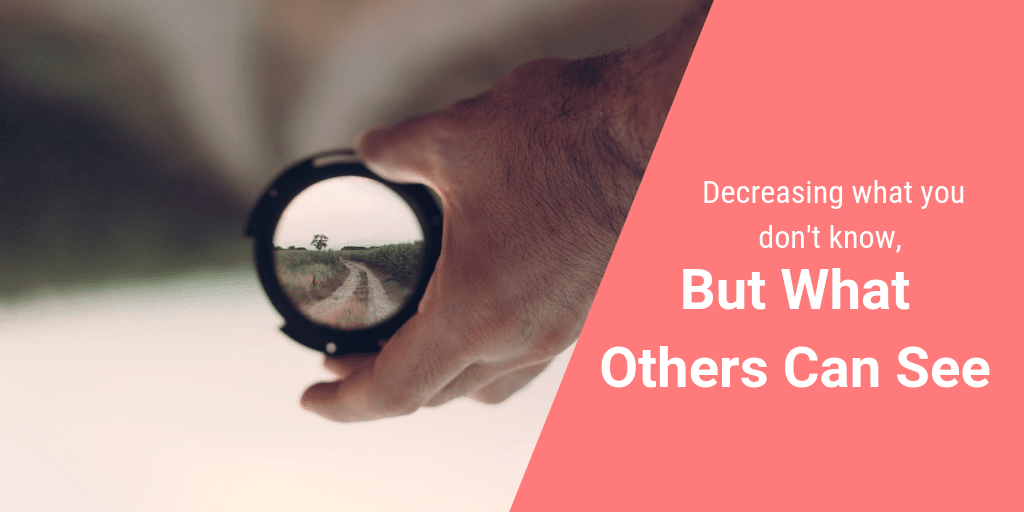Like clockwork, your curmudgeonly uncle makes a comment that aggravates your sister.
Or a team member asks that annoying question after the decision is made and everyone wonders why they didn’t raise this issue while the discussion was going full tilt.
Or the party just never gets started until the “sparkplug” gets there, that person who just lights up the room by walking into it. It’s possible the person you’re watching has no idea of the impact they are making.
Addressing the Blind Area
This week, we’re focusing on Quadrant 2, the Blind Area of the Johari Window.
The Blind Area is information the individual doesn’t know about him/herself, while others are aware of it. Some refer to it as ignorance about oneself or issues where one is deluded.
It isn’t necessarily negative information. We can have positive traits of which we are not aware, also. What is certain is we all have this area.
With intentionality and the vulnerability to gain feedback from trusted advisors or team members, we can decrease the amount of blind spot in our window. By decreasing the Blind Area and increasing our Open Area, we can more effectively contribute our best in all areas of our life.
Personal 360 Feedback
One tool to gain insight into your Blind Area is 360 Feedback. Many organizations use this for performance reviews. You can also use a 360 Feedback process on your own, asking those whose input you value to give you feedback on what you may not be able to see about yourself.
Questions designed to provide insight are provided to key people. For instance, if you’re looking for insight about work, you might ask your manager or supervisor, a trusted client, a peer, a vendor, an employee, perhaps someone who works with you in a volunteer capacity to provide feedback.
Reviewing this feedback gives you insight into your contribution to your organization, either positive or negative. Awareness of negative impacts on your organization can become a positive, because through awareness you can do something about it.
A few years ago, I did a 360 Feedback exercise through Reach Personal Branding. One piece of information I received was a comment that I don’t let go of things easily – beliefs, ideas, connections.
This feedback was phrased as a negative; however, I turned it into positive. It helped me see myself as tenacious, a quality I would have never owned before. It also made me aware of the need to measure when to hang on and when to let go.
This new insight increased my Open Area, decreased my Blind Area and made me more self-aware. I have a different impact on others as I recognize where tenacity is a benefit and where it is a detriment.
How can you gain insight into your Blind Area? Who are the trusted people you can ask for this feedback?

